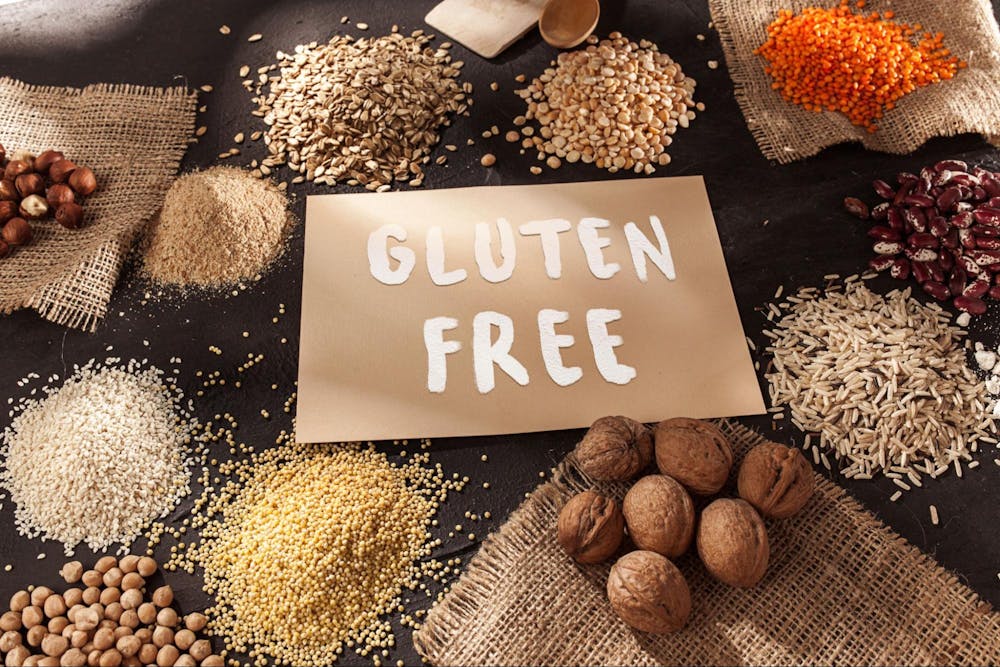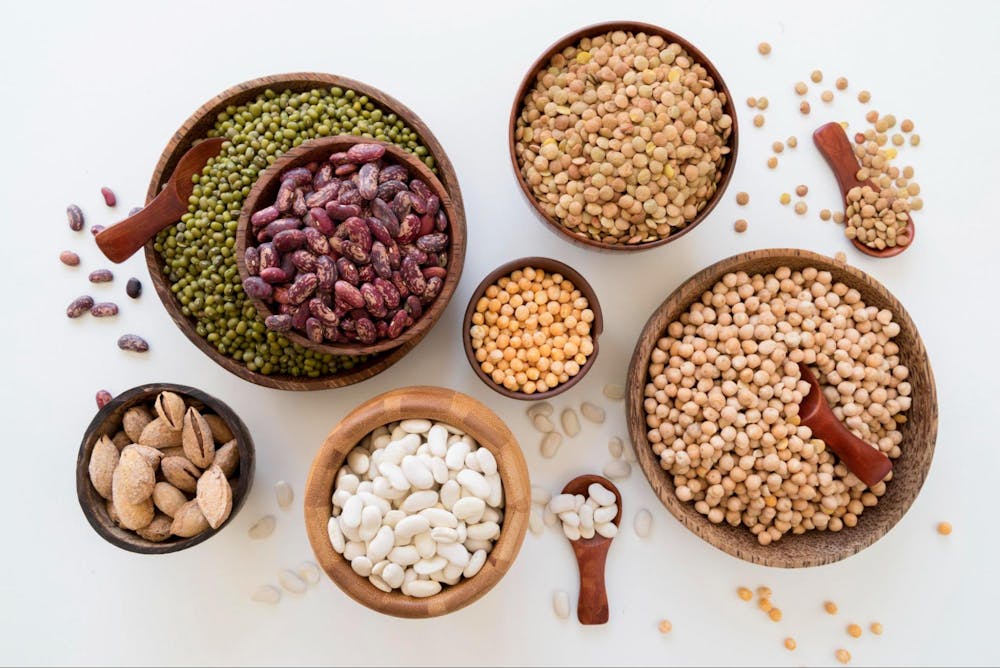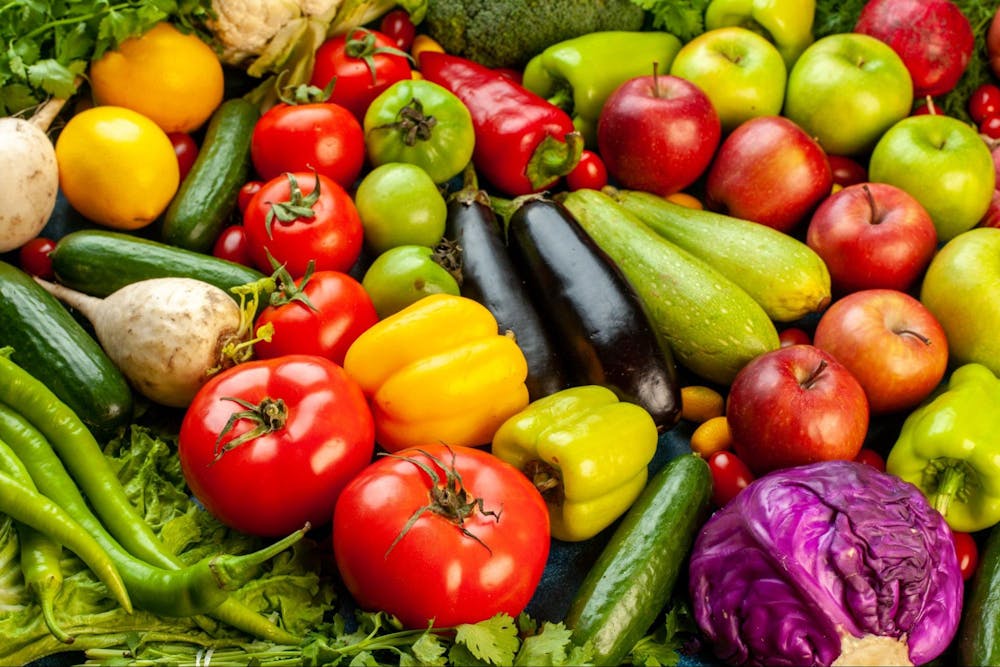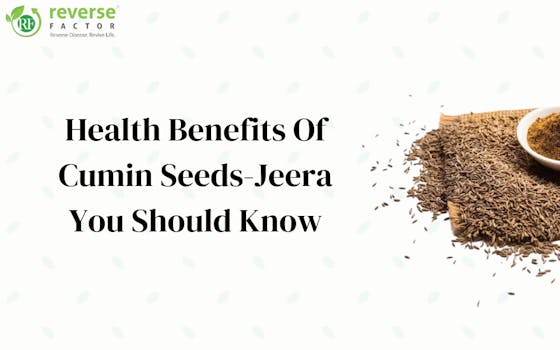Is A Grain-Free Diet Healthy For Everyone?
Are you wondering is a grain-free diet healthy for you? 🤔 Going grain-free has several benefits, especially if you have a gluten allergy or specific health objectives. A grain-free diet might not be right for everyone. However, it's worth learning about the benefits, especially if you struggle with digestive disorders, autoimmune conditions, or food sensitivities. It can help you in healing gut health and improving many serious conditions related to gluten allergy. Continue reading to explore the potential wonders a grain-free diet can offer to your gut health.

What Is A Grain Free Diet?
Eliminating all grains from your diet, even those that are gluten-free is referred to as a grain-free diet. This means making adjustments beyond just eliminating wheat products from the daily diet. Barley, corn, rice, and oats which are a part of the gluten free diet are prohibited as well. However, you can include pseudocereals like quinoa, amaranth, and buckwheat in small portions. It promotes the consumption of starchy vegetables like sweet potatoes, carrots, and pumpkins. In addition, emphasis is placed on foods high in protein, such as legumes, beans, seeds, and nuts. Grain free recipes are praised for their anti-inflammatory effects. It enables you to pay attention to your body's needs and eliminate any meals that can cause discomfort or digestive problems.


Recommended: Glow Up With These Top 18 Best Food For Skin Care
Health Benefits Of Consuming Gluten Free Grains
Following are the grain free diet benefits that you should know before making a new diet plan-
Benefit Your Heart Health-
Your cardiovascular health may improve by eliminating whole grains from your diet. Many trusted heart disease reversal program recommend eating a plant-based diet which is good for health. However, grains, especially refined ones, can cause a spike in blood sugar levels and inflammation in the body. Both conditions can put a negative impact on your heart health. Eliminating grains may reduce your intake of refined carbohydrates and processed foods. These foods are frequently high in unhealthy fats, and added sugars.
Reduce Inflammation In The Body
A grain-free diet may be able to lower inflammation in the body. It is truly beneficial because inflammation is a major contributing factor in many chronic diseases. Additionally, avoiding grains can increase the consumption of fruits and vegetables. These foods are high in antioxidants and healthy compounds that can reduce inflammation. Fruits and vegetables are also considered the most healthy cancer reversing foods.
It Can Improve Mental Health
Grain products may cause symptoms including brain fog, exhaustion, and mood swings in people who are gluten sensitive or suffering from celiac disease. A grain-free diet for humans might benefit them by improving their mental clarity and increasing energy levels. However, before making any dietary change, consult with your healthcare expert to ensure it aligns with your body's needs.
It Can Help You With Weight Management
You might naturally cut back on your consumption of these high-calorie meals by removing grains from your diet. Focusing on nutrient-dense foods, such as fruits, vegetables, and healthy fats, might help you feel satisfied. Grain free recipes may also be able to control blood sugar levels and reduce cravings for processed and sugary foods. All these factors can help with weight management.
Grain Free Meals Can Help Manage Blood Sugar
Grain free meal plan can help people with diabetes manage their blood sugar levels. While it is not necessary to eliminate all grains, a grain-free approach can still have positive effects. A grain-free diet encourages improved blood sugar management by eliminating processed grains. However, it is crucial to remember that whole grains can actually reduce the chance of getting diabetes. It can help with blood sugar control when consumed in moderation. Hence, you should work on a balanced approach that focuses on consuming whole grains along with other nutrient-dense foods.
Read This: A Nutritional Guide To Leaky Gut Diet By Reverse Factor [2023]
What Are The Side Effects Of A Grain Free Diet?
There may be certain negative effects of grain-free food that need to be taken into account. By avoiding grains, you may reduce your intake of vital nutrients including dietary fiber, minerals, and B vitamins. If your diet doesn't contain enough fiber, it can raise your risk of constipation. To counter this, it is important to increase fiber intake from other sources like fruit peels and vegetable skins. Furthermore, eliminating whole grains may raise the risk of heart disease, especially for people who don’t have celiac disease. As whole grains are a critical source of nutrients and help to reduce gastrointestinal inflammation. If you have a history of nutritional deficiencies, eliminating grains can can lead you to various grain free diet side effects. So, it’s better to consult a dietician or healthcare expert to before making a gluten free diet plan. They can suggest you the most healthy and nutritious gluten free diet chart as per your health needs.
Also Read: Ways to Improve Gut Health and Reduce Inflammation
Healthy & Nutritious Grain Free Food List
Consume fruits like oranges, apples, and watermelon
Opt for healthy fat sources like nuts, seeds, and olive oil
Include starchy vegetables like sweet potatoes, potatoes, and lady fingers in your diet plan
Also include broccoli, cauliflower, and carrots in your daily meals
What Should You Avoid In A Grain Free Diet?
If you are wondering what to add to your grain-free diet, here is the no grain no pain diet chart that you must follow. Avoiding these foods can help you reduce the risk of gut disease.
Avoid whole grains like rice, wheat, oats, barley
Never consume plant-based milk such as almond milk, or rice milk.
Avoid grain-based snacks like popcorn, or oat bars
Avoid foods made with wheat flour like pizza, bread, noodles, and pasta
Also avoid baked foods like cake, cookies, and muffins
Final Thoughts –
It's important to learn that not everyone will necessarily benefit from a diet free of grains in terms of health. Even though a no-grain diet may benefit some people, there is no need to stop eating grains if you don't fit into those categories. However, if your health requires this diet then reduce your consumption of refined grain products. Instead, prioritize nutrient-rich foods like vegetables and fruits in your diet.
Frequently Asked Questions –
Can You Live Without Wheat?
Yes, it is possible to live without wheat because there are a variety of wheat-free food available for people who have gluten intolerance.
What Foods Can Replace Grains?
Instead of grains, you can consume things like amaranth, buckwheat, sweet potatoes, and root vegetables.
Is Quitting Wheat Good For Health?
Giving up wheat can be helpful for those who are sensitive to or intolerant to gluten, but it is not always essential or healthy for everyone.
Who Should Avoid Grains?
Individuals with celiac disease or gluten intolerance should avoid grains containing gluten.
What Flour Is Grain Free?
Coconut flour and almond flour are the best grain-free alternative.
Which Grains To Avoid?
People with gluten intolerance should generally avoid grains like wheat, barley, rye, and oats.
![Is a Grain-Free Diet Healthy- Everything You Need to Know [2023] - blog poster](https://images.prismic.io/reversefactor/6bf9fb31-fe5b-4560-bf79-cbba69298a0c_Is+a+Grain-Free+Diet+Healthy-+Everything+You+Need+to+Know+%5B2023%5D.png?auto=compress,format&rect=0,0,1200,600&w=1200&h=600)



